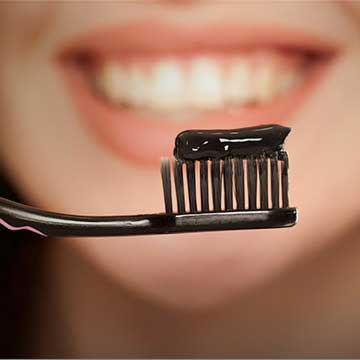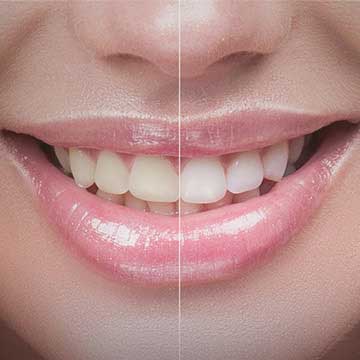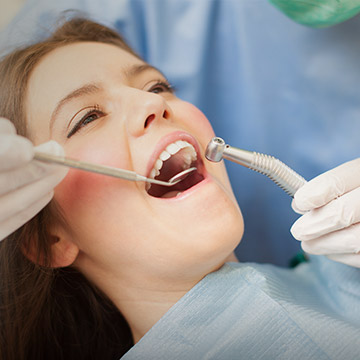Jaw discomfort, headaches, and difficulty chewing can all be signs of a temporomandibular joint (TMJ) disorder—a condition that affects the hinge connecting your jaw to your skull. If at-home care and other treatments haven’t worked, your dentist may recommend TMJ injections.
TMJ injections are a minimally invasive treatment that can help relieve pain and tension in the jaw muscles by using targeted medication, such as Botox, to relax overactive muscles.
What Is the Temporomandibular Joint?
The temporomandibular joint is located just in front of each ear and works like a sliding hinge, allowing your jaw to move up, down, and side-to-side. This joint plays a big role in chewing, speaking, and even yawning.
When the joint or surrounding muscles are strained, injured, or misaligned, it can lead to temporomandibular joint disorder (TMD). This condition can be caused by:
- Teeth grinding or clenching (bruxism)
- Jaw injury or trauma
- Arthritis in the joint
- Chronic stress leading to muscle tension
- Misalignment of the bite
Common Symptoms of TMJ Disorder
If you have TMD, you might notice:
- Jaw pain or tenderness
- Clicking, popping, or grating sounds when moving the jaw
- Difficulty or discomfort when chewing
- Facial pain, earaches, or headaches
- Limited movement of the jaw or locking of the joint
These symptoms can range from mild to severe and can affect daily activities.
Treatment for TMJ Disorder
TMJ disorders often improve with conservative, non-invasive care before injections are considered. Your dentist may recommend:
- Mouthguards or splints: These can prevent teeth grinding and reduce strain on the joint.
- Warm compresses: Applying heat to the jaw area can relax muscles and improve blood flow.
- Eating soft foods: This, along with cutting food into smaller pieces, can reduce strain during chewing.
- Keep the jaw relaxed: Avoid resting your chin in your hand, clenching, or overextending your jaw.
When these strategies aren’t enough, TMJ injections may be an effective next step.
What Are TMJ Injections?
TMJ injections involve placing a small amount of medication, often Botox or dysport, directly into the muscles around the jaw that are causing pain or tension. Botox works by temporarily relaxing overactive muscles, which reduces strain on the joint and allows for better movement without discomfort.
The procedure is quick, usually taking 30 to 60 minutes, and requires no downtime. Most patients are able to resume their normal activities right away.
Dentists trained in TMJ therapy can precisely target the affected muscles, such as the masseter and temporalis, for optimal results.
How Long Do TMJ Injections Last?
The relief from TMJ injections typically lasts 3 to 6 months. Many patients notice improvement within a few days, but the full effect may take up to 2 weeks.
Because the effects wear off over time, repeat treatments may be needed to maintain results, especially if the underlying habits (like clenching) continue.
What Does a TMJ Injection Do?
TMJ injections help by:
- Reducing muscle tension that contributes to jaw pain and headaches
- Improving range of motion so it’s easier to chew and speak
- Minimizing teeth grinding that can damage teeth and exacerbate TMJ pain
- Preventing further inflammation in the joint
By allowing the muscles to relax, injections can break the cycle of pain and tension, helping the joint to function more normally.
How Painful Are TMJ Injections?
Most patients describe TMJ injections as quick and tolerable. A small needle is used, and an ice pack can be applied beforehand to minimize discomfort.
You might feel a brief pinch or mild pressure during the injection, followed by slight tenderness in the treated area for a day or two. This is usually manageable with over-the-counter pain relief and resolves quickly.
For many people, the short-term discomfort is outweighed by the significant and lasting relief from chronic jaw pain.

Is Botox for TMJ Safe?
When performed by a qualified dental professional, Botox injections for TMJ are considered safe and effective. Side effects are rare and typically mild, such as temporary bruising or minor soreness at the injection site.
Botox has been used in both cosmetic and therapeutic treatments for many years, and its muscle-relaxing properties make it a valuable option for TMJ disorder relief.
Living Comfortably with TMJ Disorder
TMJ disorder can be frustrating and painful, but there are solutions to help you regain comfort and function. From home care and mouthguards to targeted treatments like Botox injections, there are multiple approaches to managing symptoms and preventing flare-ups.
If jaw pain is interfering with your daily life, it’s worth exploring whether TMJ injections could be right for you. At Otara Dental in St. Albert, AB, we provide personalized TMJ care, including Botox injections, to help relieve your discomfort and improve your quality of life. Contact us today to schedule an assessment and learn if this treatment is right for you.









